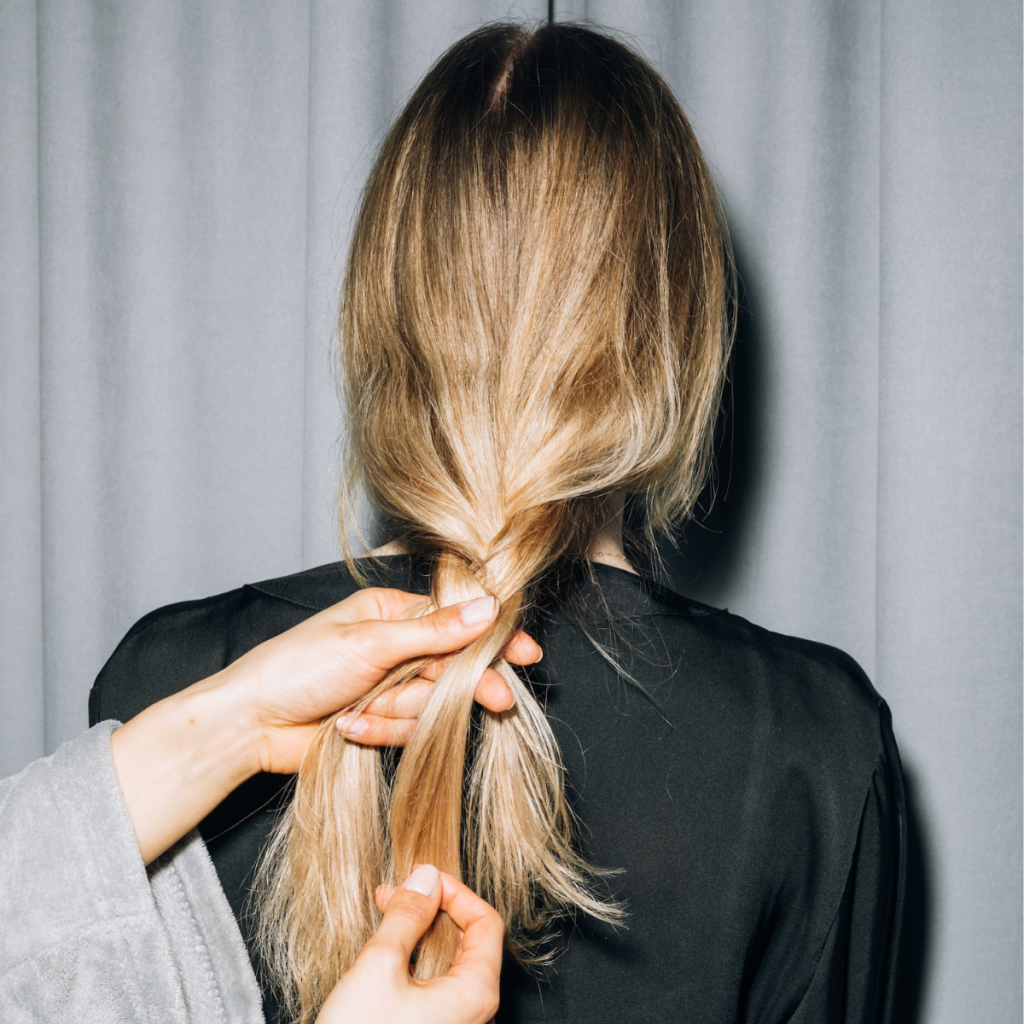Discover the truth about hair oils and their potential to stimulate hair growth and reduce hair loss.
Can Hair Oils Stimulate Hair Growth and Reduce Hair Loss?
Are you tired of trying every hair growth product on the market, only to be disappointed with the lackluster results? Well, it’s time to give hair oils a chance! Yes, you heard it right. Those tiny bottles of magic might just hold the key to unlocking luscious locks and bidding farewell to hair loss. But before we dive into the world of hair oils, let’s first understand the basics of hair growth and hair loss.
Understanding Hair Growth and Hair Loss
The human scalp is a battleground, where countless hair follicles are constantly engaged in a cycle of growth, rest, and shedding. This remarkable process is known as the hair growth cycle. Understanding how this cycle works can provide valuable insights into the causes of hair loss.
Let’s dive deeper into the intricacies of the hair growth cycle. Imagine your scalp as a bustling city, with each hair follicle acting as a factory tirelessly producing new strands day in and day out. The hair growth cycle consists of three phases: anagen (growth), catagen (rest), and telogen (shedding). Each hair follicle operates independently, meaning that at any given time, you may have hairs at different stages of the cycle.
During the anagen phase, the hair follicle is in full swing, producing new hair cells that push the old ones upward and out of the follicle. This phase is the epitome of productivity, as the hair grows at a rate of about half an inch per month. The longer the anagen phase, the longer your hair can grow.
Next comes the catagen phase, a transitional period where hair growth slows down, and the follicle prepares to shed the old hair strand. Think of it as a brief intermission before the next act begins. This phase lasts for about two to three weeks.
Finally, the telogen phase kicks in, and the old hair strand bids its final farewell, making room for new hair to emerge. This phase lasts for about three to four months, during which the hair follicle remains inactive before the cycle starts anew.
Common Causes of Hair Loss

Now that we’ve got a grasp on the hair growth cycle, it’s time to shed some light on the root causes of hair loss. While genetics plays a significant role (thanks, Grandma), there are other factors at play as well.
Stress, oh stress! It seems to be the culprit behind many health issues, including hair loss. When we’re under stress, our body releases a hormone called cortisol, which can disrupt the hair growth cycle. Additionally, stress can lead to conditions like trichotillomania, where individuals have an irresistible urge to pull out their hair.
Hormonal imbalances can also wreak havoc on our luscious locks. Conditions such as polycystic ovary syndrome (PCOS), thyroid disorders, and hormonal changes during pregnancy or menopause can contribute to hair loss. These hormonal imbalances can disrupt the delicate balance of the hair growth cycle, leading to excessive shedding.
Our hair needs proper nourishment to thrive, and nutrient deficiencies can take a toll on its health. Lack of essential vitamins and minerals, such as iron, zinc, biotin, and vitamin D, can weaken the hair follicles and result in hair loss. A balanced diet rich in these nutrients is crucial for maintaining healthy hair.
Environmental factors can also play a role in hair loss. Exposure to pollutants, harsh chemicals, and excessive heat from styling tools can damage the hair shaft, making it more prone to breakage and thinning. Protecting your hair from these external stressors is essential for its overall health.
Before rushing to the nearest hair oil aisle, it’s crucial to understand how these magical elixirs work their wonders. While some hair oils can provide nourishment and hydration to the scalp, promoting a healthy environment for hair growth, it’s important to address the underlying causes of hair loss for long-term solutions.
The Science Behind Hair Oils
Despite their seemingly humble appearance, hair oils pack a punch when it comes to nourishing your hair and scalp. They work in two primary ways: by providing a protective barrier and delivering essential nutrients straight to the hair follicles.
Imagine your hair follicles going on a spa retreat, sipping tropical cocktails and soaking up all the pampering. That’s the kind of vacation a good hair oil offers. By forming a protective barrier around each strand, hair oils shield your precious locks from environmental damage, such as sun exposure and pollution. This barrier helps retain moisture, prevent breakage, and reduce split ends.
But that’s not all! Hair oils also nourish your scalp, providing essential nutrients that enhance hair growth. These tiny bottles of liquid gold contain vitamins, fatty acids, and antioxidants that penetrate the hair follicles, promoting healthy hair growth from within.
When it comes to essential nutrients, not all hair oils are created equal. Some oils take the nutrient game to a whole new level, offering a wide array of nourishing goodies for your hair follicles. Let’s take a closer look at a few popular ones:
Coconut Oil
Coconut oil is a superstar in the world of hair oils. It is rich in lauric acid, which has antimicrobial properties that can help combat scalp infections and dandruff. Additionally, coconut oil contains medium-chain fatty acids that easily penetrate the hair shaft, providing deep hydration and strengthening the hair strands. It also helps to reduce protein loss from the hair, making it less prone to breakage and damage.
Argan Oil
Argan oil, also known as “liquid gold,” is derived from the nuts of the argan tree, which is native to Morocco. This luxurious oil is packed with essential fatty acids, antioxidants, and vitamin E. It is known for its ability to moisturize and nourish the hair, making it soft, smooth, and shiny. Argan oil is also a popular choice for taming frizz and reducing flyaways, leaving you with a sleek and polished look.
Jojoba Oil
Derived from the seeds of the jojoba plant, jojoba oil is a lightweight and non-greasy oil that closely resembles the natural sebum produced by our scalp. It is rich in vitamins, minerals, and fatty acids, making it an excellent choice for moisturizing and conditioning the hair. Jojoba oil helps to balance the scalp’s natural oil production, preventing excessive oiliness or dryness. It also adds shine and luster to the hair, promoting a healthy and vibrant appearance.
Castor Oil
Castor oil is a thick and viscous oil that is extracted from the seeds of the castor plant. It is known for its high concentration of ricinoleic acid, which has anti-inflammatory and antimicrobial properties. Castor oil is often used to promote hair growth and thickness, as it nourishes the hair follicles and stimulates blood circulation in the scalp. It can also help to alleviate scalp conditions like dandruff and itching, leaving your scalp healthy and balanced.
These are just a few examples of the essential nutrients found in hair oils. Whether you choose coconut oil, argan oil, jojoba oil, castor oil, or any other oil, incorporating a hair oil into your hair care routine can provide numerous benefits for your hair and scalp. So go ahead, indulge in the world of hair oils, and let your hair shine with vitality and health!
Popular Hair Oils for Hair Growth and Reduction of Hair Loss

Coconut Oil
Ah, the sweet scent of coconuts! Coconut oil has been cherished for centuries as a hair growth elixir. Packed with medium-chain fatty acids and vitamin E, this tropical treat strengthens the hair shaft, adds shine, and promotes overall hair health.
Castor Oil
Castor oil may have a thick consistency, but its benefits for hair growth are undeniably impressive. Rich in ricinoleic acid, castor oil improves blood circulation to the scalp, nourishes the hair follicles, and stimulates hair growth. Be warned, though: a little goes a long way!
Argan Oil
Hailing from the majestic land of Morocco, argan oil is a true gift from nature’s treasure chest. Bursting with vitamin E, antioxidants, and fatty acids, this precious oil moisturizes the scalp, prevents dryness, and promotes healthy hair growth. Plus, it leaves your mane silky smooth!
How to Use Hair Oils for Optimal Results
Ready to embark on your hair oil journey? Excellent! Let’s explore some best practices for applying hair oils and how to integrate them seamlessly into your hair care routine.
Best Practices for Applying Hair Oils
Start by choosing a high-quality hair oil that suits your hair type and concerns. Whether it’s coconut, castor, or argan oil, make sure it’s pure and free from any harmful additives.
Before applying the oil, warm it up in your palms to enhance absorption. Then, gently massage the oil into your scalp using circular motions. This not only stimulates blood flow but also ensures the oil reaches the hair follicles.
Let the oil work its magic for at least 30 minutes (or even overnight if you’re feeling adventurous) before hopping into the shower to rinse it off. Shampoo and condition as usual, and voila! Say hello to luscious locks.
How Often Should You Use Hair Oils?
Like most things in life, moderation is key. It’s best to use hair oils once or twice a week, as excessive use can make your hair greasy and weigh it down. Experiment with different frequencies and find what works best for you and your hair type.
Scientific Studies on Hair Oils and Hair Growth
Curious minds may wonder if there is any scientific evidence behind the hair oil hype. The good news is that researchers have been hard at work, delving into the realm of oils and their impact on hair growth. Let’s take a closer look!
Evidence Supporting Hair Oils for Hair Growth
While more research is needed to fully understand the extent of hair oil benefits, several studies have shown promising results. For example, a study published in the Journal of Cosmetic Science found that coconut oil can reduce hair protein loss, making it an effective treatment for hair damage. Other studies suggest that castor oil may enhance hair growth and thickness.
Limitations and Criticisms of Existing Studies
It’s important to note that not all studies are created equal, and some have their limitations. For instance, many studies are conducted on animals or in vitro, making it difficult to extrapolate the results to human hair. Additionally, while hair oils may provide significant benefits, they may not be a miracle cure for everyone. Individual results may vary.
In Conclusion
If you’ve been dreaming of luscious, healthy hair while tossing and turning at night, it’s time to give hair oils a whirl. These tiny bottles of magic can help nourish your hair follicles, stimulate growth, and reduce hair loss. Whether you choose coconut oil, castor oil, or argan oil, make sure to pamper your hair and scalp with love and care. While hair oils may not work miracles, they sure can be a worthy addition to your hair care routine. So, why not embark on this oily adventure and unlock the hidden potential of your locks?





